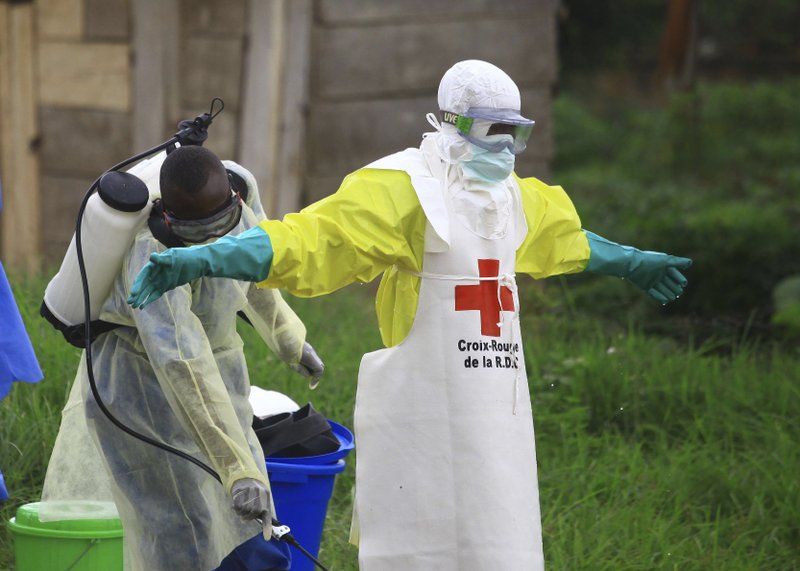GENEVA -- The ongoing Ebola outbreak in Congo does not yet warrant declaring a global emergency but is of "deep concern," the World Health Organization said Friday.
After a meeting of its expert committee, the U.N. health agency called for redoubled efforts to stop the deadly virus, noting that the recent spike in Ebola cases raises the risk of spread to other countries.
The outbreak announced on Aug. 1 has become the second-deadliest in history, behind the West African one from 2014-16 that killed more than 11,300 people. Congo's Health Ministry on Thursday reported 1,206 confirmed and probable cases, including 764 deaths.
This is the second time the expert committee has decided this outbreak is not yet a global emergency. Committee chairman Robert Steffen called Friday's decision unanimous and said the experts had feared making the declaration might even hurt response efforts. He did not give details but said experts were "moderately optimistic" the outbreak could be contained within a "foreseeable time."
Ahead of the WHO announcement, a top Red Cross official said he was "more concerned than I have ever been" about Ebola's possible regional spread.
Emanuele Capobianco, head of health and care at the International Federation of Red Cross and Red Crescent Societies, cited Congolese Health Ministry data showing 40 new cases over two days this week. He called that rate unprecedented in this outbreak.
To be designated a public health emergency of international concern, a situation must be "serious, unusual or unexpected," threaten to infect other countries and require "immediate international action."
Emergency declarations almost always boost global attention and donor funding. WHO has noted it is woefully short of the $148 million it says is needed to fight Ebola for the next six months. To date, the agency has only received $74 million.
This outbreak, occurring close to the borders of Uganda, Rwanda and South Sudan, has been like no other. Mistrust has been high in a region that had never faced an Ebola outbreak before, and insecurity caused by rebel groups has hurt aid efforts.
Rebecca Katz, a global health security expert at Georgetown University, in a statement called WHO's decision disappointing, saying the U.N. agency and its experts were "taking too narrow of an interpretation" of what constitutes an international emergency. She called the difficulty of coordinating the response "deeply concerning."
A Section on 04/13/2019
